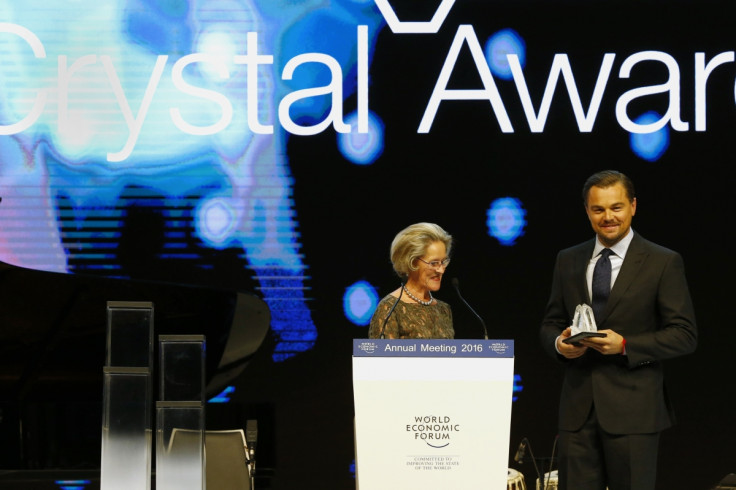Davos 2016: China slowdown, migrant crisis and Leonardo DiCaprio the highlights of WEF meeting

The annual World Economic Forum meeting ended in Davos over the weekend (January 23-24) and, despite the delicate financial climate, the message out of Switzerland was not as downbeat as some had initially expected.
While concerning, China's economic slowdown remains manageable even though it is impossible to ignore that the first month of 2016 has brought "the worst start to any year on record in financial markets ever", as Credit Suisse chief executive Tidjane Thiam described it in the final session on Saturday.
Thiam's words, however, did little to alleviate the concerns of those who forecast a repeat of the 2008 financial crisis and whose worries were exacerbated by the growing worries that central banks might struggle to revive flagging economies, despite the stimulus measures they have implemented over the last 12 months. In January 2015, European Central Bank (ECB) President Mario Draghi unveiled a eagerly-anticipated quantitative easing programme aimed at stimulating a Eurozone economy reeling from fears of break-up in the wake of Greece's debt crisis and financial turmoil.
A year on, inflation in the 19-country bloc remains close to zero and growth continues to be subdued and Draghi's assertion that the ECB still had "plenty of instruments" to achieve its goals, failed to strike a positive note with Davos' participants.
"We understand that there may be no limit to what the ECB is willing to do but there's a very clear limit to what the ECB can and will achieve," said Axel Weber, chairman of Swiss bank UBS and former Bundesbank chief.
If Europe's economy remains in troubled waters, its geopolitical environment faces an even more challenging environment, with the refugee crisis, the danger of Islamic State-driven terrorism and a potential Brexit posing different threats.
"You've had deadly crises in Europe from day one and we've overcome them," said Josef Joffe, the publisher-editor of German weekly Die Zeit. "However we always had one crisis at a time. Today we have about five, from Brexit to Isis (Daesh) and everything in between. In the past we had leadership. Today we are facing overwhelming demands on leadership and we are delivering less of it."
While some pointed to December's climate deal as proof of what can be achieved when policymakers are all on the same wave length, others, including International Monetary Fund managing director Christine Lagarde, warned Europe faced a "make or break" moment.
Swedish Prime Minister Stefan Lofven and his Dutch counterpart Mark Rutte said the 28-country bloc had approximately two months to get its act together and come up with a concrete plan on how to deal with the migrant crisis. Their comments followed news Austria became the latest Schengen passport-free travel zone member to implement unilateral steps at the border to halt the influx of migrants.
"There is no way you can cope with such a massive flow of people just by closing the borders," said Federica Mogherini, the High Representative of the European Union for Foreign Affairs and Security Policy. "What do you do? You close the border and it's your neighbor's problem, who closes the border, and it's the other neighbor's problem?"
The situation might be delicate in Europe, but one of the most resounding messages from Davos highlighted a struggle felt worldwide. Speaking at an awards ceremony during the four-day meeting, Leonardo DiCaprio warned global powers needed to take more action to tackle climate change.
"We simply cannot afford to allow the corporate greed of the coal, oil and gas industries to determine the future of humanity," the actor, who is tipped to win an Oscar this year, said. "Those entities with a financial interest in preserving this destructive system have denied, and even covered up the evidence of our changing climate. Enough is enough. You know better. The world knows better. History will place the blame for this devastation squarely at their feet."
© Copyright IBTimes 2025. All rights reserved.






















